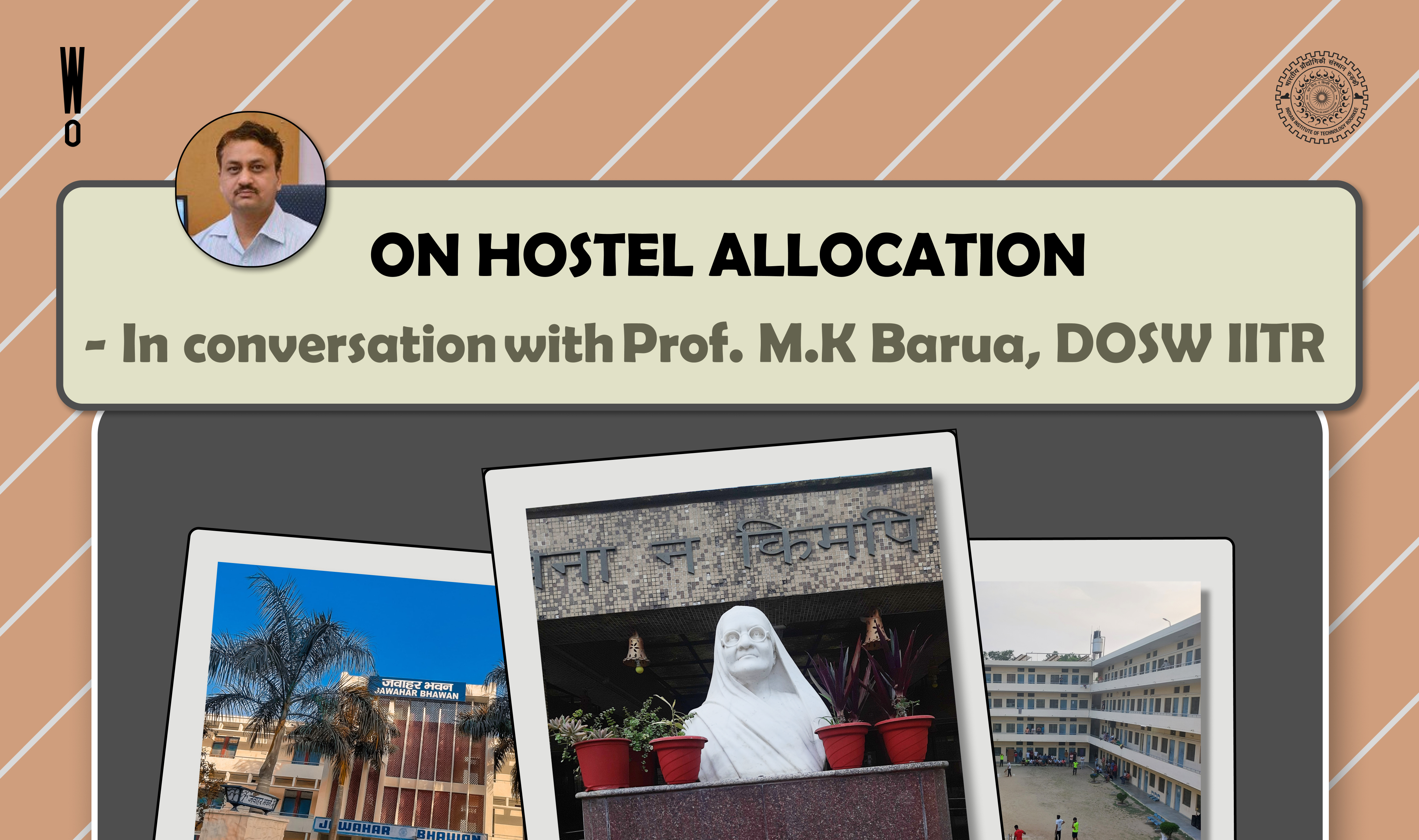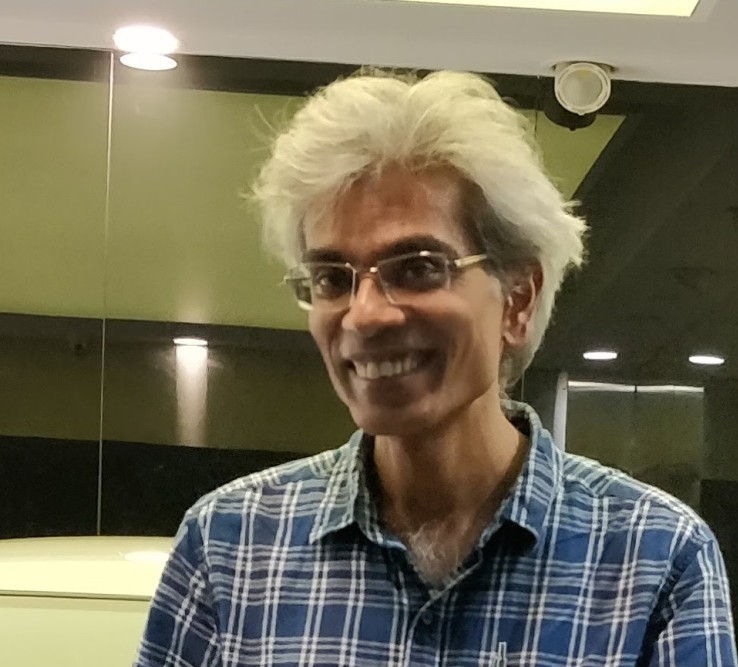

Body of IITR

Prof. Justin David is an accomplished theoretical string theorist, who is currently the chairman of the prestigious Centre for High Energy Physics, Indian Institute of Science (CHEP-IISc). On the 4th of November 2019, he delivered an Institute Lecture in Roorkee, on entanglement entropy and holography. As part of our larger goal to increase the coverage of the Institute Lectures, Watch Out! decided to interview Prof. Justin David, to find out more about his undergraduate life, his research and more.
WO : How was your undergraduate life? When did you start seeing research as a viable career option?
Prof. Justin David : From my high school onwards, I was very clear that I wanted to study maths and physics. Even though I had a better JEE rank than was required, I opted for Integrated M.Sc. Physics at IIT Kanpur, since I wanted to pursue Physics at that time. Luckily, IIT Kanpur had a good culture of Physics, which I believe is still being continued. It was only later that I got interested in string theory.
I believe a strong sense of community is necessary in order to establish a good research culture, and I also believe that it is very easy to destroy that kind of culture simply by just putting the power into the wrong hands. One wrong person in the position of power and the entire research culture can be put in jeopardy.
WO : After doing your post-doctoral research work at the University of California what encouraged you to come back to India? Do you think there are ample opportunities for research in our country?
Prof. Justin David : I cannot speak for other research areas, but since my topic of research is string theory and it is a theoretical topic, there have been ample opportunities for this topic in India. Maybe India lags in opportunities in the field of experimental research, but for a wide variety of research areas, especially theoretical physics, India has ample opportunities and a good research culture.
What I believe is that in order to establish a good culture of research, you need to have a sort of community. Thus, starting research in the field of something that is already being pursued in the country is easier than starting something new.
WO : You received the prestigious DST Ramanujan fellowship. How important do you think these programs are in motivating researchers?
Prof. Justin David : These fellowships are awarded at the post-doctoral level and are not only encouraging, but provide the researchers with a fund to travel around, delivering lectures as well as attending them, and these actually encourage researchers at that level to achieve more.
WO : Can you give us an idea of what exactly your talk is going to be about?
Prof. Justin David : I am going to give a talk on entropy geometry. You usually visualize entropy as randomness, but I am going to talk about the geometry present in it.
WO : With people still believing in the earth being flat, do you think it’s necessary to initiate programs which educate people about science and research?
Prof. Justin David : I think that most of the impact can be made by actually initiating a program at the school level. The real science-awareness can be spread amongst only students studying at the school level, because the adults are too set in their ways to accept new ways of thinking.
WO : How do you think undergrads can make the best of their college life?
Prof. Justin David : Undergraduates need to figure out what they are interested in. I mean, you people have so much energy, you can pursue anything you want, but you should try to find what interests you the most. Also, you need to find the right mentor for yourself. Now, I was only able to find my mentor at the post-doctoral level, but you guys need to start looking around.